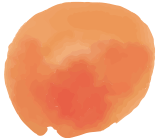ADOK (Alzheimer's Dementia Organisation Kenya) works to raise awareness of Alzheimer’s, and provide support to those affected with Alzheimer’s and other forms of Dementia.
In 2017, the Alzheimer’s disease International, which is the international federation of Alzheimer’s associations around the world in official relations with World Health Organisation, recognised ADOK as an official chapter.
ADOK relies on donations in order to carry out its work on raising awareness about the impact of Dementia. We ask that you partner with us by making a donation as you can make a real difference to people in Kenya coping with Alzheimer’s disease and Dementia.
To offer holistic support for people living with dementia and their caregivers in Kenya.
To demystify the belief of what dementia is by creating a society that understands what dementia is, and that those living with Dementia and their carers are supported by building connections. Here they will feel accepted and are able to peacefully live in their communities without fear or prejudice.



Dementia is not a specific disease. It’s an overall term that describes a wide range of symptoms associated with a decline in memory, language, behaviour, problem-solving or other thinking skills severe enough to reduce a person’s ability to perform everyday activities. Alzheimer's disease is the most common type of dementia.
Dementia is often incorrectly referred to as “senility” or “senile dementia,” which reflects the formerly widespread but incorrect belief that serious mental decline is a normal part of aging.

Around 19 out of 20 people with dementia have one of four main types. Dementia affects everyone differently, however each type has some common early symptoms.
When signs of cognitive decline can no longer be ignored, a visit to a GP visit is often the next step.

Every person does experience dementia differently, there are nonetheless some common early signs and symptoms of dementia.
Dementia is caused by neurodegeneration – the damage and death of the brain’s neurons.

Some things can increase your risk of getting dementia, including your age, genes and lifestyle.
Getting older is the biggest risk factor for getting dementia; Staying active, eating healthily and exercising your mind can help reduce your own risk.

We appreciate that being diagnosed with Dementia is devastating news for both the affected and family as it is life changing news that comes with a lot of challenges from acceptance, coping and caring for affected individual. Our in-house psychologist will assist you walk through this journey.


Caring for a loved one with Dementia poses many challenges for families and caregivers. We aren’t born knowing how to communicate with a person with dementia—but we can learn. With our guidance, we can improving your communication skills that will help make caregiving less stressful and will likely improve the quality of your relationship with your loved one.
As part of our international networks, we do take part in a collective of researchers carrying out population-based research into dementia with a bid to influence policy makers on legislation that will have a positive impact in supporting people with Dementia.
Anonymized scientific survey interviews go a long way in providing data driven facts that form the basis for policy briefings.
Caregiving is demanding; Respite care provides caregivers a much needed temporary rest from caregiving, while the person living with Alzheimer's continues to receive care in a safe environment.
Everyone needs a break from time to time. It is important that carers are able to have a rest, whether it is a short break to run errands or meet friends, or longer time spent away.
As ADOK, we have a physical and virtual support community that meet often for free to support everyone affected by Alzheimer’s or another dementia, including people with the disease and their caregivers, friends, family members and neighbors, as well as those who have lost someone to the disease.
NB: Support Group sessions are free, check the News & Events section for monthly group meetings.
Counselling serves a number of purposes; support in facing the diagnosis, information to understand the illness, an opportunity to talk and work through issues that is usually not available elsewhere (others don't understand).
It also serves to provide kindness, respect, and attention as well as focus on strengths or competence rather than disabilities and improved coping ability.
NB: For professional personalized counseling services, you will be charged. Contact Us to book your session.
Our community outreach and advocacy members form a crucial pillar to speak on behalf of ADOK as well as manage campaigns, speak to legislators and interested individuals. These support groups are facilitated by trained individuals.

